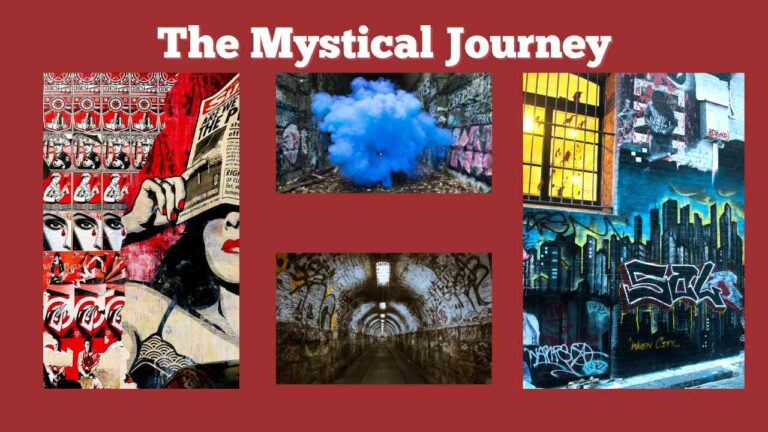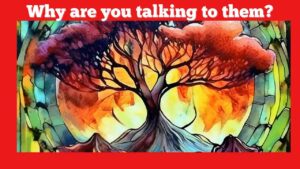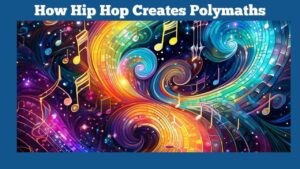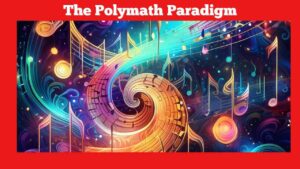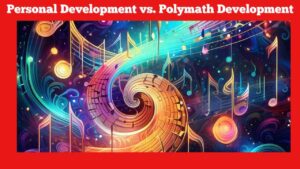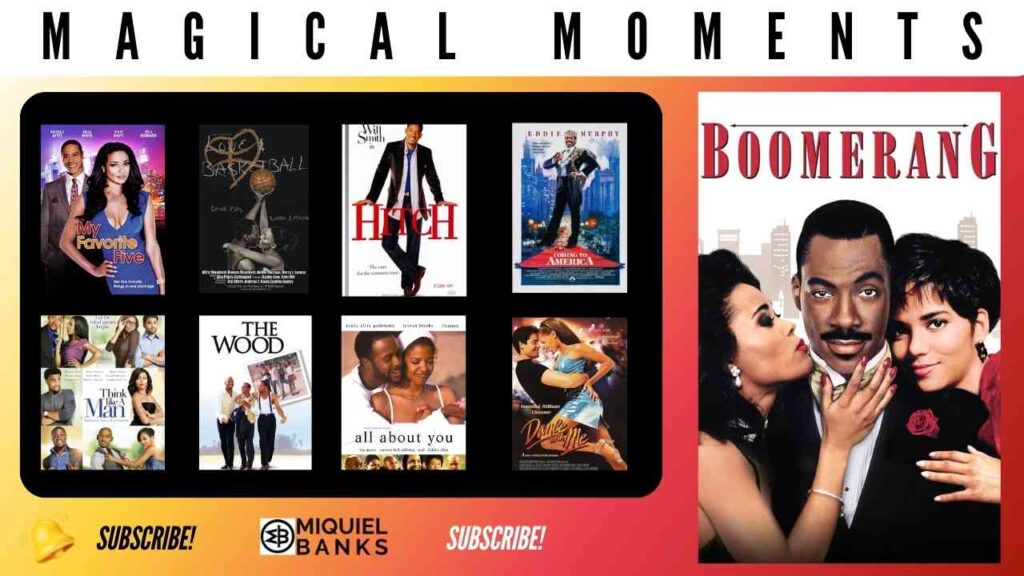Introduction
Embark on a mystical journey into the depths of hip hop culture, where the realms of myth and reality intertwine to unveil higher states of consciousness.
As we dive into the vibrant history of hip hop, from its origins in Atlanta to its global influence, we will uncover the hidden narratives and profound meanings that lie beneath the surface.
Through the lens of quantum mechanics and physics, we will explore how hip hop culture taps into a collective consciousness, creating a “scenius” that transcends individual talent.
Join us on this immersive exploration as we challenge societal norms, question the status quo, and ignite the spark of curiosity that will forever change the way you perceive culture and myth.
Are you ready to embark on this transformative odyssey?
The Roots and Reality of Hip Hop Culture
Tracing the Origins: From Streets to Scenius
The story of hip hop culture begins in the vibrant streets where communities, bounded by a shared experience, expressed their realities through music, dance, art, and poetry.
In the heart of Atlanta, these expressions were not just forms of entertainment but a language that spoke to the soul of the city.
As the culture spread, the collective talent and creativity of these artists and influencers coalesced into something greater than the sum of its parts—a scenius.
This term captures the communal genius that emerges when a network of people contribute to the cultural and intellectual life of a community.
Here, in the crucible of Atlanta’s urban landscape, hip hop became more than a genre; it became a movement, a way of life, and a means to convey deeper meaning.
The Atlanta Hip Hop Evolution: A Brief History
Atlanta hip hop’s journey is a tale of growth and influence, marked by distinct sounds and an evolving identity. It began with the raw energy of block parties and local DJs, who mixed records in ways that sparked a cultural revolution.
As the scene grew, Atlanta became a hub for innovation, birthing a unique style that blended Southern soul with the pulsating rhythms of the city.
The 1990s saw the rise of record labels like LaFace and So So Def, which propelled Atlanta hip hop onto the national stage.
Artists like OutKast and Usher emerged, pushing the boundaries of the genre and solidifying the city’s reputation as a center for hip hop culture.
This era laid the groundwork for future generations, transforming Atlanta into a beacon for artists seeking to make their mark on hip hop history.
Hip Hop’s Deeper Meaning: Not Just Music, A Cultural Phenomenon
Hip hop culture transcends the realm of music; it’s a cultural phenomenon that encapsulates a way of life. It’s a voice for the voiceless, a form of resistance against oppression, and a platform for storytelling that resonates with the deeper realities of life.
The beats, the rhymes, and the movements all serve a greater purpose—they reflect the hopes, fears, and aspirations of a community.
Hip hop offers a critical lens through which we can examine societal issues, confront injustices, and celebrate triumphs. It’s a connector of people, a language that crosses borders, and a mythology in itself, filled with heroes and anti-heroes, struggles and victories.
Understanding hip hop means looking beyond the music to see the impact it has on fashion, language, politics, and identity. It’s not simply a genre; it’s a deeper reality that continues to shape and be shaped by its followers.
Reality within Rhythms: The Myth and Magic of Hip Hop
Hip Hop as Storytelling: Transmitting Myth through Lyrics
Hip hop has always been a potent form of storytelling, with lyrics that often serve as modern-day myths, reflecting and shaping the culture’s collective consciousness.
These stories, articulated through the rhythm and rhyme of the music, carry the weight of experiences, the tales of struggle, success, and the pursuit of meaning.
Artists become the myth makers, their verses the vessels carrying narratives that transcend time and place.
The myths woven into the fabric of hip hop are not just stories; they are testimonies and proclamations that challenge the listener to see the world from a different perspective.
They are the chronicles of personal journeys that resonate with a broader audience, inspiring action, reflection, and transformation.
Through the power of storytelling, hip hop continues to be a catalyst for cultural evolution and the keeper of its community’s legends.
Embodying the Deeper Reality: From Beats to Quantum Physics
Hip hop is more than just a sensory experience; it’s an intellectual one that parallels the complexities of quantum physics.
The beats and breaks of hip hop music create patterns that resonate with the principles of vibration and energy found in quantum mechanics.
Just as particles exist in a state of probability until measured, hip hop exists in a realm of potentiality, with every beat offering a new possibility for interpretation and creation.
The improvisational nature of freestyling mirrors the uncertainty principle, showcasing the spontaneous creation of meaning in the moment.
This interplay between the structured and the unpredictable gives hip hop a dynamism that mirrors the deeper reality of the universe.
By embodying both the seen and unseen forces that shape our existence, hip hop invites us to consider the interconnectedness of all things and the power of our own consciousness.
Quantum Mechanics and Rhythmic Rhymes: A Unique Intersection
The unlikely pairing of quantum mechanics and hip hop may seem far-fetched, yet there is an undeniable parallel between the two.
Quantum mechanics challenges our understanding of reality, suggesting that at a fundamental level, the act of observation can alter the state of matter.
Similarly, hip hop challenges perceptions, using rhythmic rhymes to reshape narratives and speaking truths that alter our consciousness.
Both realms deal with waves—sound waves manipulated by the artist, and probability waves that define quantum states.
They both involve a dance with the unknown, playing with elements that are not fully understood but deeply felt.
This unique intersection suggests that hip hop, much like quantum physics, is a conduit to deeper realities, where the observer—the listener—is an active participant in creating the moment’s experience, blurring the lines between the observer and the observed, the beat and the quantum bit.
The Journey into the Soul of Hip Hop
From Consumption to Consciousness: Navigating Hip Hop’s Deeper Level
The relationship with hip hop often starts with consumption—a catchy beat, a powerful lyric—but for those who delve deeper, it evolves into a consciousness.
This journey into the soul of hip hop is about understanding the essence behind the art form.
It’s about recognizing the cultural forces that shaped it and the messages embedded within its layers.
As listeners peel back these layers, they move from passive consumers to active participants in hip hop culture.
This shift is transformative, enabling individuals to connect with the collective experiences and societal critiques expressed through the music.
The deeper level of hip hop is a space where cultural identity, social commentary, and personal reflection converge, inviting a more profound engagement with the art and, ultimately, with oneself.
It’s this depth that positions hip hop as not just a genre but a conduit for cultural evolution and self-discovery.
Hip Hop as Vessel for Vision: The Power of Perception
Hip hop serves as a powerful vessel for vision, shaping perceptions and offering a lens into diverse experiences.
It paints pictures of life’s complexities, from the struggles on the streets to the triumphs of the spirit.
The power of perception in hip hop lies in its ability to amplify voices that might otherwise go unheard, providing a platform for storytelling that challenges the listener’s worldview. As a vessel, hip hop carries the ideas, emotions, and perspectives of its creators, allowing them to navigate through societal barriers and connect with audiences globally.
The genre encourages listeners to see beyond their own experiences, fostering empathy and understanding through its visceral and authentic narratives.
By engaging with hip hop, one gains more than just a musical experience; they gain insight into the human condition and the power to influence perception both within and beyond the boundaries of the culture.
The Call of Creativity: Answering the Hip Hop Culture
Hip hop calls out to the creative spirit, beckoning artists and fans alike to engage with the culture on a deeper level.
Answering this call means more than just creating; it involves immersing oneself in the rhythms, the stories, and the community.
Hip hop culture doesn’t just accept creativity; it demands it.
The genre’s history is filled with moments where innovation has led to evolution, where artists have challenged norms and expanded the boundaries of what hip hop can be.
This call to creativity is also a call to authenticity, to bring one’s own experiences and truths to the table.
For those who respond, hip hop provides a canvas for expression unlike any other, where the beats serve as brushstrokes and the lyrics as colors, together painting a vivid picture of life as seen through the eyes of its most passionate observers.
Embracing the Elemental Essence of Hip Hop
Probing Into the Provocative: The Activist Angle in Hip Hop
Hip hop has long been a tool for activism, probing into provocative topics and giving a voice to the disenfranchised.
From its inception, the genre has acted as a megaphone for social and political commentary, tackling issues like racial inequality, police brutality, and systemic oppression.
Artists use their platform to challenge listeners, asking them to confront uncomfortable truths and inspiring them to take action.
The activist angle in hip hop is not simply about pointing out societal flaws; it is about igniting change and empowering communities.
By embracing the elemental essence of hip hop, one also embraces its inherent call to activism.
This aspect of the culture is critical, as it pushes the boundaries of what music can achieve and underscores the responsibility of artists and fans to use their influence for the greater good.
Defining Through Defiance: Hip Hop as a Stand Against Suppression
Hip hop has always defined itself through an attitude of defiance, standing firmly against any form of suppression.
Its very essence is rooted in the battle for expression, a response to the silencing of marginalized voices.
The music and culture act as a form of rebellion, breaking down barriers and challenging the status quo.
Artists craft their lyrics like weapons, using sharp words to cut through the fabric of societal norms and expectations.
As a stand against suppression, hip hop not only offers a critique of the present but also provides a vision of what could be.
It is a space where the marginalized can assert their identity, speak their truth, and reclaim their power.
This defiance is not just a reaction to oppression; it’s a declaration of existence and a commitment to the fight for a more equitable and just society.
Voices of Pride: An Expression of Cultural Critique
Hip hop is a platform where voices of pride resound, offering a potent expression of cultural critique. The artists of hip hop, true to the culture’s activist roots, do not shy away from addressing the flaws and contradictions within society.
Their music is a canvas for exposing the challenges faced by their communities, often highlighting issues that mainstream media overlooks or misrepresents.
This pride is not born out of arrogance but out of a sense of self-respect and a desire for dignity for all people.
It’s about celebrating identity, heritage, and the strength found in unity.
Hip hop’s cultural critique is a tool for education and empowerment, encouraging listeners to question the narratives fed to them and to think critically about the world around them.
In this way, hip hop continues to serve as a beacon for change, inspiring pride and fostering a resilient spirit in the face of adversity.
The Ultimate Unveiling: Hip Hop as a Gateway to Deeper Consciousness
Moving Beyond the Mundane: Hip Hop’s Transcendental Truth
Hip hop culture possesses a transcendental truth that propels it beyond the mundanity of daily life.
It’s not just about the physical components—the music, dance, and art—but about the spiritual journey it invites.
Hip hop’s stories and messages often convey a deeper existential search for meaning and understanding.
This search is a quest that resonates with many, offering a form of solace and connection that is hard to find elsewhere.
It’s in the layered beats and complex lyrics where one can find reflections on life, purpose, and the universe.
This transcendental aspect of hip hop provides a gateway to a deeper consciousness, encouraging self-exploration and a greater awareness of the human experience.
It is this quality that elevates hip hop from a mere cultural phenomenon to a vehicle for enlightenment and personal growth.
Rhetorical Reality: Provoking Thought Through Hip Hop Vernacular
Hip hop’s distinctive vernacular is not only a hallmark of its cultural identity but also a means to provoke thought and convey rhetorical reality.
The language of hip hop is rich with metaphor, simile, and wordplay, allowing artists to construct narratives that challenge listeners to think critically about the messages being delivered.
This vernacular becomes a tool for reflection, as the words and phrases used are often loaded with deeper meaning and social commentary.
Through its unique linguistic style, hip hop communicates complex ideas and emotions in a way that is accessible and relatable, resonating with a wide audience.
The rhetorical devices employed are not merely for artistic flair; they serve to engage the listener’s mind, stirring conversations and sparking debates.
The vernacular of hip hop is as much about the delivery of the message as it is about the message itself, creating a reality that encourages active engagement with the content and the culture.
Syncing with the Scene: Become a Part of the Hip Hop Story
To truly grasp the essence of hip hop, one must move beyond the role of a passive observer and become an active participant in the culture.
Syncing with the scene means diving into the narratives, embracing the history, and contributing to the ongoing story of hip hop.
This involvement can take many forms, from creating music to engaging in the dance, from production to activism, or simply by educating oneself about the culture’s roots and evolution.
By becoming a part of the hip hop story, individuals not only gain a deeper appreciation for the art form but also contribute to its legacy and direction.
This connection fosters a sense of belonging and a shared identity among those who resonate with hip hop’s message.
The culture welcomes all who are willing to listen, learn, and add their voice to the chorus of stories that make hip hop a gateway to deeper consciousness.

